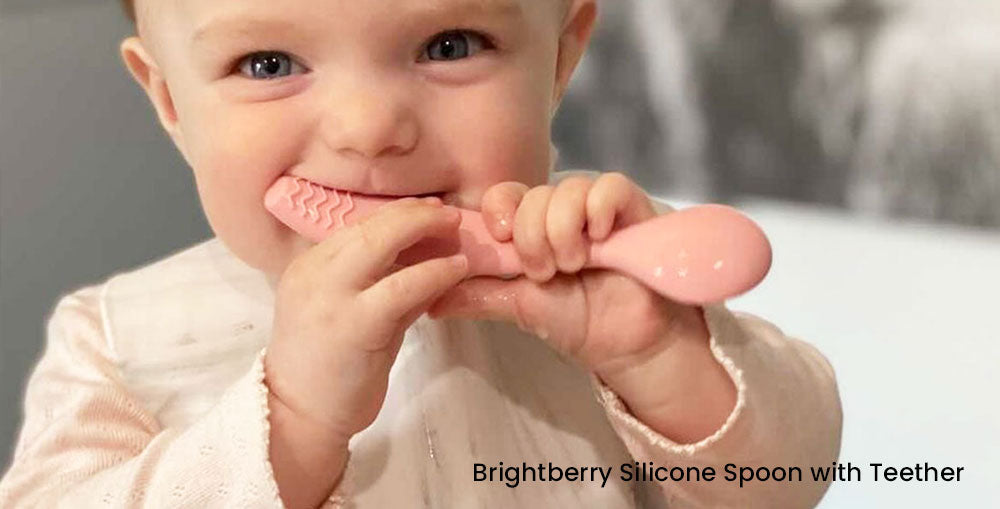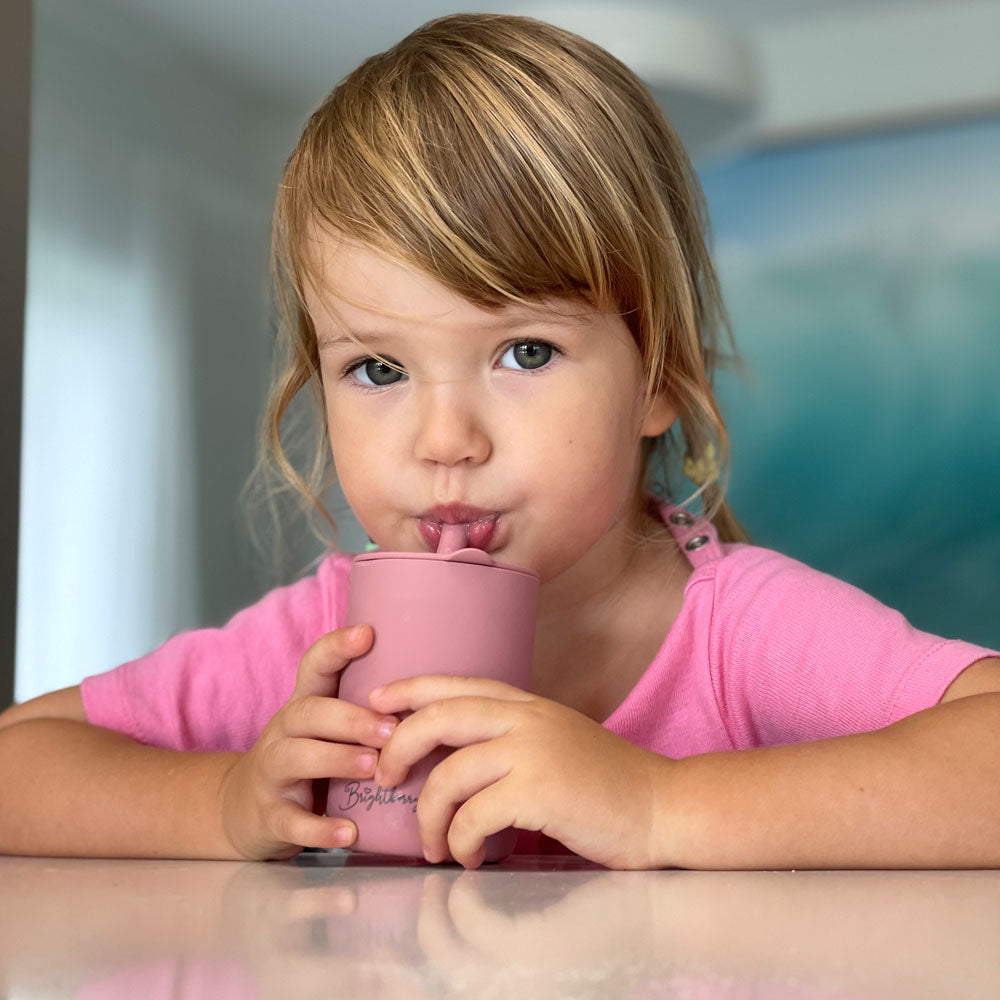Silicone VS Plastic For Babies
One of the most crucial elements affecting a baby product's safety is its material.
Children's products frequently experience varying conditions, such as very high heat in microwaves and being put through dishwashers.
Plastic tableware is a staple for many parents. That's for good reason since plastic is a convenient, strong, and cheap material. However, as we learn more about the health effects associated with their manufacturing process, parents are increasingly looking for a safe and convenient alternative. As a result, manufacturers turned to other materials, such as stainless steel. Glass is also an option for particular items. However, products like glass bottles are heavy for little hands to grip effectively, and what if they break?
You need something non-toxic that is exceptionally durable, long-lasting, easy to clean, and affordable. Does such a magical material even exist?
Silicone, especially brightly coloured silicone like Brightberry's baby tableware range, fits the bill. As a food safe material, you'll find silicone everywhere. Kitchen utensils, numerous baby bottle nipples, snack containers, baking dishes, silicone baby bottles, and even toys are a few everyday silicone products at home.
So, what exactly is the problem with plastic, and why should you choose silicone instead?
Is silicone chemical-free or not?

We pay attention to our products containing no bisphenol A (BPA) for a good reason. Even a tiny amount of BPA connects to certain cancers, reproductive impairment, and damage to hormonal systems. It should be concerning that a 2007 study showed more than 90% of plastic baby bottles leached BPA. Consequently, the law now requires BPA free plastics in all plastic baby products.
Problem solved, right? Well, no. It seems like we can't catch a break with plastic products! We're realising more and more that BPA alternatives, like Bisphenol S (BPS) and melamine, could be just as, if not more dangerous, than BPA.
That may be unavoidable because plastics are more chemically reactive than silicone. This reactivity means plastics always have a chance to leach chemicals when heated. While most plastics come from petroleum, silicone comes from silicon. Silicon is a naturally occurring substance and the second most abundant element in the Earth's crust. Silicon is also an inert element.
Degradability
Studies into plastic's impact on young children find that kids may be ingesting millions of microplastic pieces daily. Children consume microplastics through various means, like munching on plastic pacifiers, sippy cups, plastic bottles, spoons and more. That sounds like a problem.
Scientists add that this shouldn't alarm us as there's not enough research to show that microplastics are harmful over the long term. Call us crazy, but if we could prevent our children from consuming vast quantities of microplastics daily, we'd take it. We'll assume you're probably with us on that.
We won't put our plastic baby tableware in the microwave, then. Unfortunately, not being able to use baby products to reheat anything seems like an inconvenient drawback.
The solution is clear. Unlike plastic, silicone can withstand high temperatures and won't release hazardous compounds, as it doesn't contain them at all. This stability gives silicone hypoallergenic properties, which are essential in children's products. Brightberry's food grade silicone tableware will never have the problems that plastic has.
Durability
Silicone is longer lasting than plastic. Due to how stable silicone is, you can hand down Silicone tableware through siblings s as your baby grows, and it'll remain as good as new. Silicone is microwave and dishwasher safe with no risk of leaching. Not all silicone is equal, but the 100% pure food grade silicone we use is safety tested to the highest standards.
Plastic, on the other hand, tends to develop scratches and nicks over time which will retain traces of food and harbour bacteria the more you use them.
Transitioning to safer food grade silicone
When you're weaning your baby off the plastic, glass, or stainless steel baby bottles to continue their self feeding journey, you want a safe alternative available. Silicone bottles, or even better, Brightberry's fabulous silicone smoothie cups, are your ticket. Our products will ensure your baby's safety while helping them feed independently.

In conclusion
Different brands offer baby products made from many child-safe materials. Food grade stainless steel may be practical, but if you want them in funky colours, you'll need silicone sleeves.
Ultimately, we believe silicone is the answer to combating plastic's ubiquity. Silicone can help reduce plastic consumption, so it doesn't end up in the environment because silicone is durable and long-lasting. Brightberry's food grade material is perfect for children and will protect your family's health for years to come.
















